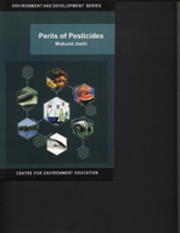7 - Policy Issues
Published online by Cambridge University Press: 26 October 2011
Summary
Prior to 1968, no comprehensive act was available to anchor major policies with respect to pesticides. However, since then many policies, anchored by the Insecticides Act, 1968, were adopted to mainly promote pesticide use in various ways. Some of these policies are:
To encourage the import of pesticides
To encourage equity participation/flow of foreign funds in the pesticide industry to establish joint ventures/wholly owned subsidiaries so that they are able to promote their products in India
To encourage demonstrations to promote the use of pesticides by the farmers
To establish vending mechanisms through wholesale/retail dealerships.
The policies adopted till now have mainly concentrated on the promotion of pesticide use and to establish/control the vending mechanisms. The policies on issues such as ban/restriction, risks and hazards, safety of use, environmental pollution have not been formulated in tune with the changing needs of the country and toxicological values of pesticides identified globally from time to time. Due to such lacunae in policies, India has remained the best potential pesticide market for Western manufacturers.
To remedy the lacunae, it would be necessary to adopt the following policies at the national level:
Policy regarding ban/restriction on use of pesticides
Policy regarding control of pollution caused by pesticides
Policy regarding safety of use of pesticides
Policy regarding sale and availability
Policy regarding promotion of sale of pesticides
Policy regarding food pollution and drinking water pollution
Policy regarding eco-friendly pesticides
Policy regarding Integrated Pest Management.
- Type
- Chapter
- Information
- Perils of Pesticides , pp. 74 - 82Publisher: Foundation BooksPrint publication year: 2005
- 1
- Cited by

